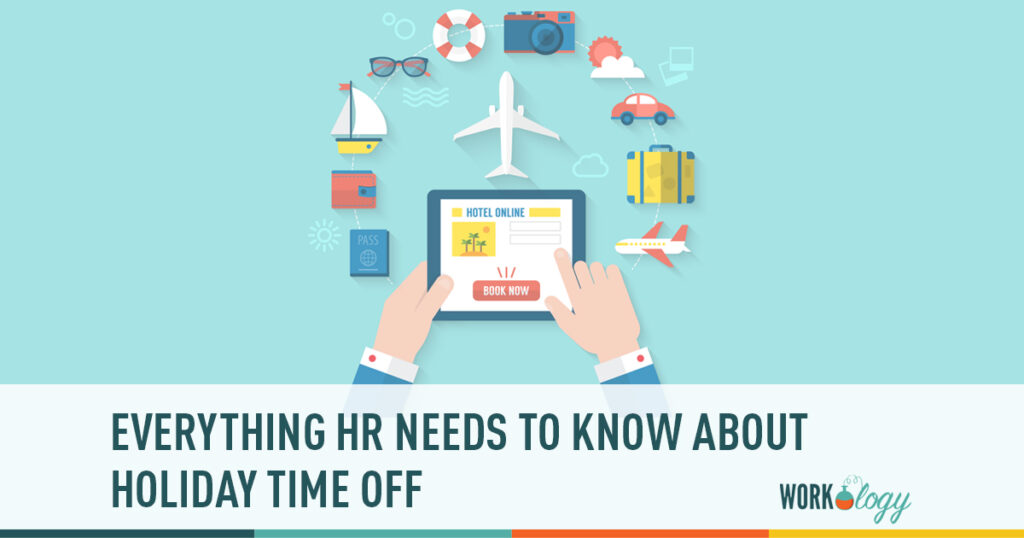Your employees use holiday time off to take a break from their responsibilities, spend time with family, and/or celebrate religious observation. It’s super important that your business has a solid holiday time off policy, not just so your employees can have a well-deserved break when needed, but also to protect your company from being accused of religious discrimination.
If you want to learn more about the different types of paid and unpaid time off, you can check out this post: 12 Types of Paid and Unpaid Leave and Time Off
What is Holiday Time Off?
Holiday time off is simply the time used during a holiday when an employee won’t work and is usually paid for the time. The Fair Labor Standards Act (FLSA) doesn’t require that holiday time is paid, but a good deal of employers offer it anyway, as it’s a good benefit that attracts employees.
Often, a company will recognize certain holidays throughout the year (New Year’s, Christmas, Labor Day, etc.), and give paid time off to employees on those days (or on the day after the weekend, if it falls on a weekend). While PTO is generally accrued or days are given in bulk, holiday time is usually static and the days are always offered to everyone.
For (mostly religious) holidays not covered on that list, some companies will offer paid or unpaid time off for valid holidays if the employees request them.
How does overtime enter into the equation?
Most companies don’t consider holiday time off as time worked when it comes to calculating overtime.
What about floating holidays?
A floating holiday is a flexible option that can be offered alongside a holiday time off policy that allows an employee to take holiday time for a day of their choosing (like a different religious holiday, a day of observation, or even a birthday). Employers can either offer a set amount of floating holidays that employees can take at their own discretion, or employees can even substitute one of the recognized holidays for a different day of their choice.
A floating holiday policy can help employees feel like their schedule is more flexible. It can help reduce burnout. It also ensures that employees who observe religious holidays or cultural holidays that aren’t on the standard list of holidays feel valued and included. For example, Juneteenth isn’t generally a holiday on the paid time off holiday list for many employers, but it can become a floating holiday using this system.
Sample Policy
[Company] recognizes eight holidays per year on which employees will receive paid time equal to a normal day of work at their usual pay rate:
- New Year’s Day
- Memorial Day
- Indigenous People’s Day
- Independence Day
- Labor Day
- Veterans Day
- Thanksgiving Day
- Christmas Day
If a holiday falls on a weekend, employees will observe the holiday on the business day closest to the holiday.
Holiday pay is not considered time worked in regard to overtime.
Employees who observe a religious or cultural holiday not recognized on this list may use our floating holiday policy. Employees receive two floating holiday days per year.









